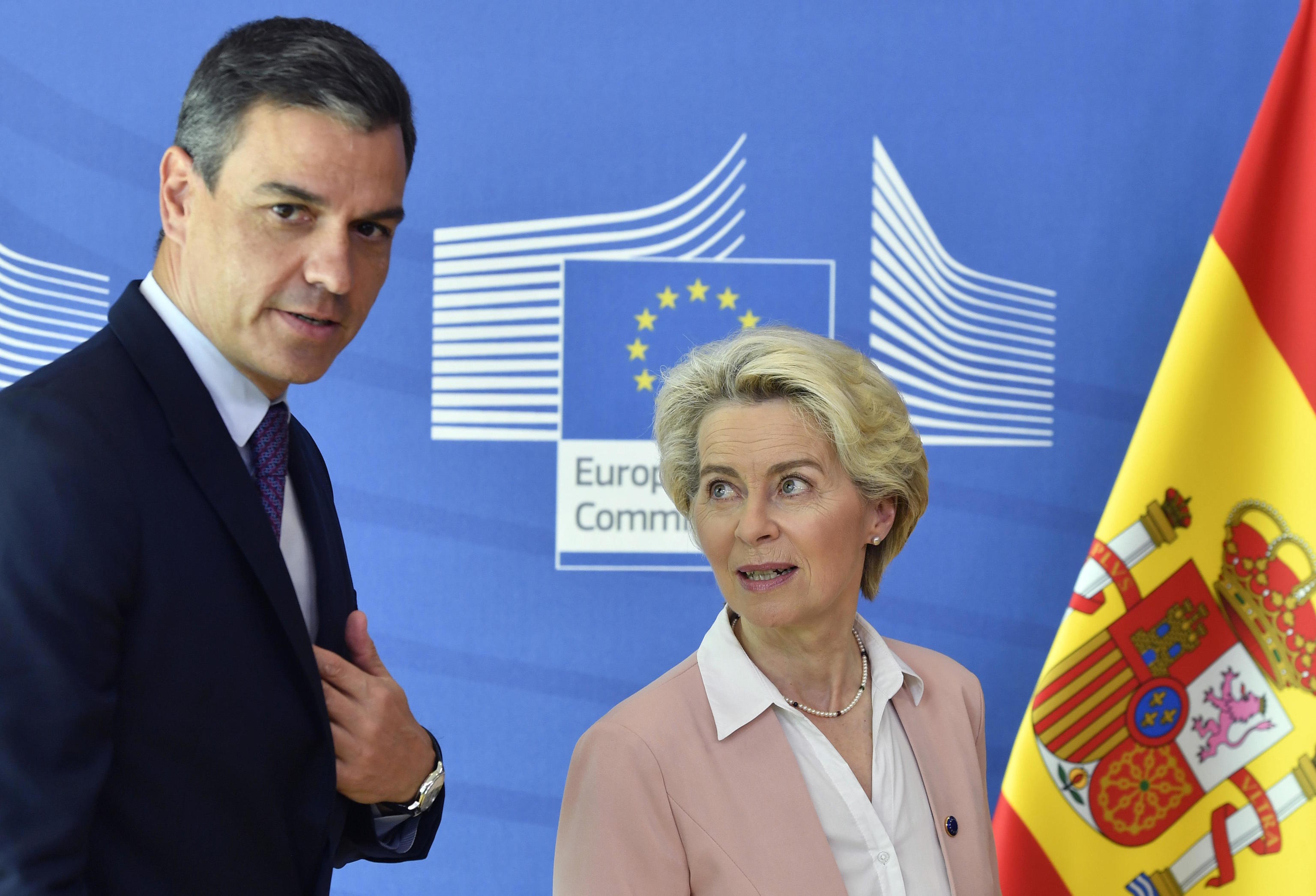"His duty is to plan and budget for the commitments that Spain must fulfill," Alberto Núñez Feijóo criticized Pedro Sánchez last Wednesday, adding, "That's what all European prime ministers are doing, except for you." In his appearance in the defense debate held in the Congress, the Spanish Prime Minister did not provide figures or specify deadlines to implement the increase in military spending that he is willing to undertake. It is a commitment he made with his counterparts on the continent to ensure Europe's defense capability, but the strategy to achieve that goal is left to each country. While most presidents and prime ministers on the continent are outlining the main points of their national military plan, Pedro Sánchez avoids detailing his project. With no budgets in sight and a Congress that does not guarantee the votes to meet the European rearmament commitments, the Spanish Prime Minister falls behind.
FRANCE. Emmanuel Macron has emerged as the leader of the European defense plan at the community level - hosting two leader summits to agree on rearmament - and at the national level, meeting with arms manufacturers and sector companies to assess their industry's capabilities. Additionally, Macron has not shied away from quantifying his military project. The French President has urged his Prime Minister, François Bayrou, to make the necessary budget adjustments to increase defense spending from 2.1% of the GDP to 3 or 3.5%. His goal is to reach 90 billion euros annually, an increase of over 30 billion from the current budget. He has also not avoided setting dates: the "adjustments" are expected to be made in two months. Furthermore, alongside the British Prime Minister, Macron has taken a step forward and will send a "security force" - meaning troops - to Ukraine.
GERMANY. The special fund of 100 billion euros to modernize the Armed Forces that the now acting Chancellor, Olaf Scholz, launched three years ago has placed German defense spending at 2.1% of the GDP. But the goal goes further. Parties negotiating to form a government agreed two weeks ago to reform the debt brake in the Constitution, thus giving the green light to increase military budget from an unlimited investment source. "Whatever is necessary," said the future Chancellor, conservative Friedrich Merz. There will be borrowing for all defense, civil protection, intelligence, and cybersecurity expenses exceeding 1% of the GDP. That threshold amounts to around 44 billion euros.
UNITED KINGDOM. The government of Labour leader Keir Starmer has not avoided any of the controversies surrounding the increase in military spending. His Finance Minister, Rachel Reeves, appeared last Wednesday and announced that the UK will cut social spending to align the accounts with the decline in growth, the rise in debt financing costs, and the new European security environment. This is how they will finance the increase in defense spending from the current 2.34% of the GDP to 2.7% in 2027, amounting to an additional 6 billion pounds (7.2 billion euros). 10% of the defense budget will be allocated to developing drone technology and Artificial Intelligence (AI) systems, which will be developed in the UK. London also plans to increase arms exports. All of this is being detailed by the Keir Starmer government, which will also co-lead with Emmanuel Macron in sending troops to Ukraine for the first time.
ITALY. Giorgia Meloni, along with Pedro Sánchez, is the leading European leader who remains most evasive when it comes to implementing the European defense objective in her country. Like the Spanish president, the Italian Prime Minister simply insists that funding for rearmament will not affect social spending on education, healthcare, or any other related areas. "Defense expenses will not touch cohesion funds," she stated, and in the Senate, she reiterated, "Italy has no intention of cutting a single euro from cohesion expenses." Giorgia Meloni appeared in her parliamentary chamber before the European Council, while Pedro Sánchez did so in the Congress of Deputies after that meeting.
POLAND AND THE BALTICS. The geographical position of these countries makes them particularly vulnerable to the Russian threat, and therefore, their defense budgets are already among the highest in the continent. Nevertheless, their leaders have announced their intention to align with Europe and strengthen their military capacity. Polish President Andrzej Duda stated that he plans to increase defense spending this year to 4.7% of the Gross Domestic Product - currently at 4.1% - and Prime Minister Donald Tusk appeared in parliament to raise the target to 5%. The intention to increase military budget also extends to the Baltic countries: Lithuania has committed to allocate 5.25% of its GDP to defense in 2026; Latvia, 4%; and Estonia approved reaching 5%.
GREECE AND PORTUGAL. While Sánchez and Meloni show reluctance in detailing how they will strengthen their military capacity, the other major Mediterranean country, Greece, has already launched its plan. The budget approved by its parliament last December included an almost 100% increase in defense spending: from 3.6 billion euros in 2024 to 6.13 billion this year. On the other hand, the Portuguese Prime Minister, facing upcoming elections in May, has only indicated his intention to increase the military budget to reach the 2% target as soon as possible.
AND THE REST... The new Belgian government has expressed its goal of reaching that 2% before summer and already indicates where that spending will go - for example, towards F-35 combat aircraft. In the Czech Republic, details are beginning to emerge on how to accelerate the increase in that allocation, a measure supported by the parliament there. Even Hungarian Prime Minister Viktor Orban is already talking about increasing that budget.
